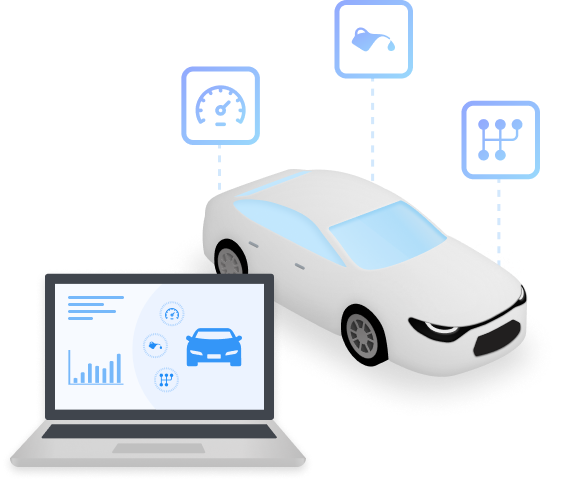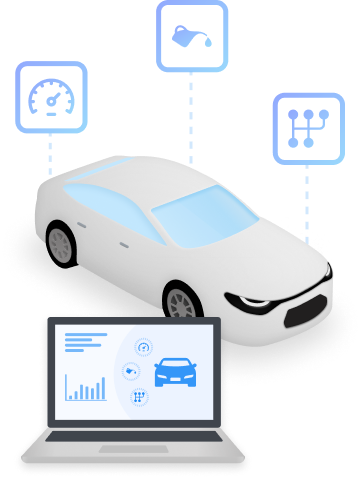- Trackers are attached to each of the vehicles that will be monitored.
- At least three satellites are used to receive data from the trackers to perform trilateration and calculate vehicle position.
- Wireless cellular towers are used to receive signals from the tracker and transmit them to a cloud server.
- Fleet management software connects to the cloud server to view real-time data about each vehicle’s location.
Commercial delivery services need to monitor the location of their vehicles to ensure that customers receive packages on time. Delivery routes can be optimized to avoid traffic jams and minimize customer-impacting delays. Vehicles that experience a mechanical failure or unexpected delays can be identified by fleet managers so corrective measures can be taken promptly. In this case, remote vehicle diagnostics can be a very good help.
The best GPS fleet management system for a delivery service will also inform managers when a driver has completed a delivery so they can be dispatched for more work or sent back to the garage. Systems can also provide information that can be shared with customers to avoid unrealistic expectations about when a package will arrive.






